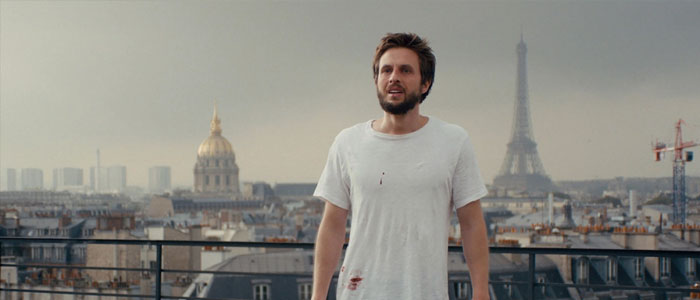
La nuit a dévoré le monde
***½/****
starring Anders Danielsen Lie, Golshifteh Farahani, Denis Lavant, Sigrid Bouaziz
screenplay by Guillaume Lemans, Jérémie Guez, Dominique Rocher, based on the novel by Pit Agarmen
directed by Dominique Rocher
by Walter Chaw A spiritual companion piece to “The Twilight Zone”‘s “Time Enough at Last,” in which a bookish, harried loner survives a nuclear holocaust (to his delight), gathers all the books he wants to read, and then accidentally breaks his glasses, Dominique Rocher’s The Night Eats the World has angry, awkward loner Sam (Anders Danielsen Lie, who broke my heart in Oslo, August 31) find a little safe space only to discover that the zombie apocalypse has happened. It opens at a party thrown by his ex-girlfriend Fanny (Sigrid Bouaziz), where he’s come to collect a box of tapes she’s accidentally taken with her upon her departure. He’s irritated that her attention’s divided and that she’s invited him to get his stuff during a party. Her public displays of affection with a new, aggressive boyfriend (David Kammenos) seem calculated, too, to make him uncomfortable, small. The first ten minutes of the film see Sam floating through the party, nursing his drink, trying to get Fanny’s attention. Hours pass with Sam on the periphery of every interaction. In a very real, visceral way, The Night Eats the World is a character study of introversion and depression. Fanny, frustrated instantly, asks Sam why he can’t just mingle, meet some new people, “try for a change.” It’s clear why they’ve broken up. She doesn’t understand what it’s like to be depressed. He doesn’t understand what it’s like not to be. She tells Sam to go in a back bedroom for his things and stay there because it’s quiet. They’ll talk later. She does understand at least that Sam might have some audio processing issues related to his overlapping conditions. Yeah, don’t we all.
